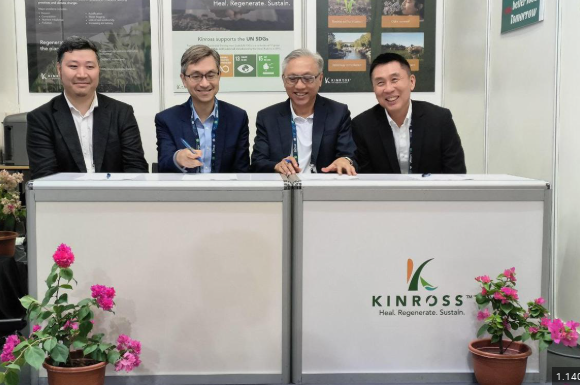KinRoss and Clean BotanEco collaborate on nature-based solutions to combat desertification and support sustainability.
SINGAPORE – A groundbreaking partnership is set to rejuvenate Mongolia’s degraded soil, boosting agricultural productivity and generating carbon credits. Singapore-based KinRoss has teamed up with Mongolian firm Clean BotanEco to combat desertification, which has rendered nearly 80% of Mongolia’s land dry and infertile.
Innovative Solutions for Land Rejuvenation
KinRoss will introduce its patented liquid microbial culture, developed to enhance soil fertility by composting manure and plant waste in black soil. This compost, rich in humic acid, helps retain moisture, which is critical for improving soil quality in arid regions.
Arthur Ku, KinRoss’ chief technical officer, highlighted that the culture, containing over 70 microbial species, adapts to varying temperatures and soil salinity. The innovation aims to meet global demand for sustainable farmland restoration.
Combatting Desertification and Boosting Food Security
Mongolia, a nation spanning 1.5 million square kilometers, faces severe challenges from desertification. The collaboration aligns with the Mongolian government’s ambitious campaign to plant one billion trees by 2030. This initiative could absorb 125 million tonnes of carbon dioxide (CO2), significantly contributing to global climate goals.
“Mongolia’s dependence on imports has underscored the importance of food security,” said Bilguundemberel Munkhdemberel, an economic and trade counsellor at the Mongolian Embassy in Singapore.
Carbon Credit Generation
The partnership includes DNZ Venture Global and the Asia Carbon Institute, focusing on nature-based solutions for carbon credit registration. These credits, representing one tonne of reduced or avoided CO2 emissions, can be sold to entities seeking to offset their carbon footprint.
Bayarjargal Batsukh, CEO of Clean BotanEco, revealed plans to establish glasshouses in Mongolia to demonstrate the effectiveness of KinRoss’ composting liquid culture. By spring 2024, pilot projects will showcase how this technology can rejuvenate land, with a facility producing 2,000 tonnes of compost expected by mid-year.
A Step Toward Sustainability
The MOU, signed during the Agri-Food Tech Expo Asia, follows a June 2023 agreement between Singapore and Mongolia to collaborate on carbon credit initiatives. This project not only addresses land degradation but also provides a scalable model for sustainable agriculture and climate action globally.


